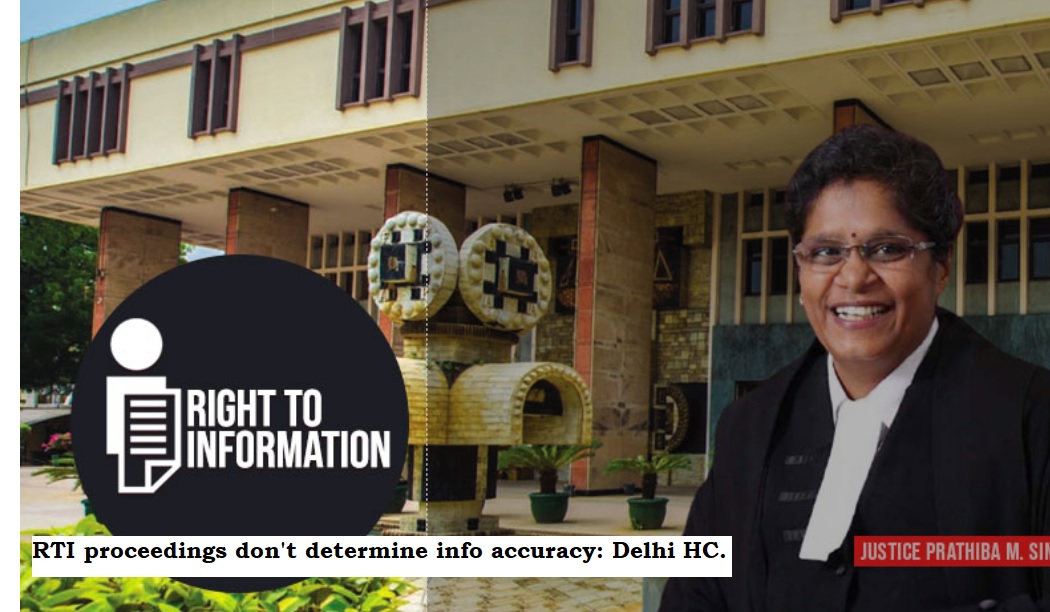


The Delhi High Court recently rendered a significant observation regarding the nature and scope of proceedings under the Right to Information (RTI) Act, 2005. In a ruling, the court elucidated that the determination of the correctness of information provided, either under the RTI Act or in any dispute arising from it, is not within the purview of the proceedings conducted under this legislative framework.
The court, presided over by a division bench comprising Acting Chief Justice Manmohan and Justice Mini Pushkarna, emphasized that the Chief Public Information Officer (CPIO) is mandated solely to supply information and documents within their access. The correctness of the information, as furnished by the CPIO under the RTI Act, does not fall under the jurisdiction of consideration or determination within the ambit of RTI proceedings.
The case in question involved an individual who filed an RTI application seeking information about his service record from the National Book Trust. The applicant contended that the CPIO had erroneously stated that he commenced working at the National Book Trust from December 15, 2008, whereas, in reality, he had been in service since the year 2001. The Central Information Commission (CIC) had upheld the CPIO's order, and the applicant subsequently challenged this decision before a single judge, who dismissed the plea.
In affirming the single judge's order, the division bench underscored the clear delineation between the provision of information and the adjudication of its accuracy. The court emphasized that the RTI Act places the responsibility on the CPIO to supply various records, documents, circulars, etc., that are accessible to the "Public Authority" under prevailing laws. However, the act does not confer the authority to scrutinize or verify the accuracy of the information supplied. The court elucidated that the CPIO fulfills their responsibility under the RTI Act by providing all accessible information and documents.
The court's reasoning was anchored in the definition of information as per the RTI Act, which encompasses a broad range of records, documents, circulars, and similar items that can be accessed by the Public Authority under existing laws. The court's analysis underscored the legislative intent behind the RTI Act, highlighting that its primary objective is to facilitate the dissemination of information and promote transparency, rather than serving as a forum for the resolution of disputes related to the accuracy of the information provided.
In dismissing the appeal, the division bench concurred with the single judge's conclusion that RTI proceedings should not be transmuted into forums for the adjudication of disputes regarding the correctness of information. The court stressed that the limited scope of RTI proceedings does not encompass the intricate determination of the veracity of the information provided but rather focuses on ensuring access to available records and documents.
The court's meticulous analysis emphasized the nuanced role of the CPIO in the RTI framework. The CPIO, as per the court's interpretation, acts as a facilitator of information, and once the accessible information is provided, their responsibility under the RTI Act is discharged. The court's decision thus reaffirms the principle that the RTI Act is not designed to address disputes regarding the accuracy of information but is instead a mechanism for ensuring access to information held by public authorities.
In conclusion, the Delhi High Court's ruling clarifies the limited scope of RTI proceedings in adjudicating the correctness of information provided. The court's meticulous examination of the legislative intent behind the RTI Act reinforces its role as a tool for transparency and information dissemination, rather than a forum for resolving disputes related to the accuracy of the information provided under its purview.
TAGS: Delhi High Court Right to Information Act (RTI) Information correctness Proceedings Chief Public Information Officer (CPIO) Division bench